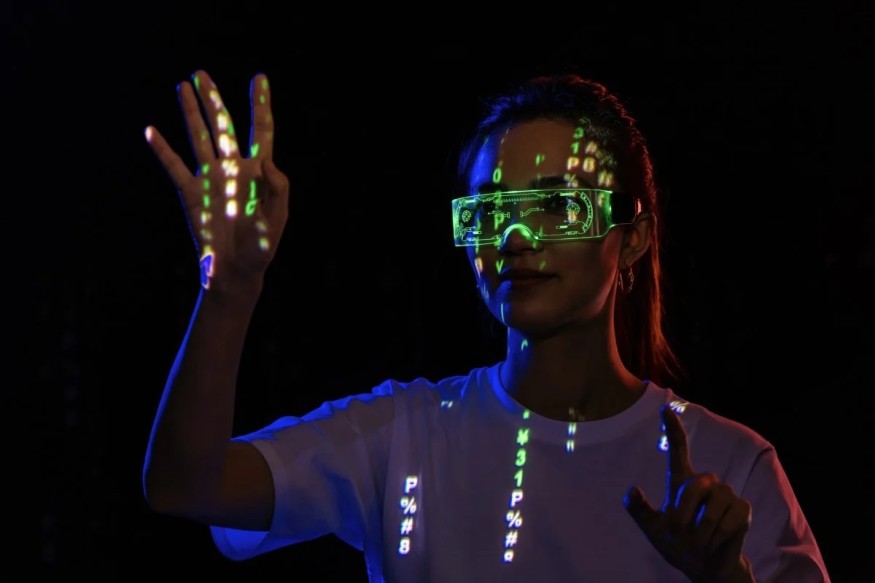Huawei's AI-Infused Sci-Fi Art Competition Envisions a Symbiotic Future

Illuminating a Collaborative Vision
In a world often dominated by dystopian narratives surrounding artificial intelligence (AI), Huawei, the telecommunications giant, recently sought to paint a brighter, more collaborative future through a global digital artwork competition. The competition, sponsored by Huawei and aptly titled the Wukong-Huahua AI Fine-Tuning and Application Competition, challenged developers worldwide to envision the intersection of AI and science fiction, fostering tech innovations, scientific advancements, and the co-creation of literature and art.
At the core of this creative endeavor is Huawei's MindSpore, an open-source AI framework designed for device, edge, and cloud scenarios. Hu Xiaoman, Huawei's director of MindSpore and AI Platform, emphasizes the need to view technology as a force for good, addressing real-world challenges rather than being perceived as a harbinger of misfortune.
MindSpore represents more than just a framework; it embodies a community that thrives on collaboration, knowledge exchange, and skill development. The competition leveraged the Wukong-Huahua foundation model, a cutting-edge AI model capable of generating images based on Chinese text. Jointly developed by three Huawei teams, this model seamlessly combines the MindSpore AI framework with Ascend Atlas' hardware, showcasing the synergy of software and hardware innovations.
The foundation model, trained on the Wukong Dataset, the largest global multimodal, Chinese-language open-source dataset, can generate high-quality images depicting diverse scenes and styles. The competition's three sub-themes - "The Symbiosis Era," "Science Fiction China," and "Extracts from Your Favorite Science Fiction Works" - encouraged participants to unleash their creativity, intertwining AI and science fiction to construct imaginative universes.
AI and Sci-Fi Collide in Artistic Harmon
The winners, announced at the "Science Fiction vs Science Fact" salon during the 81st World Science Fiction Convention, showcased the powerful fusion of AI and sci-fi. One notable entry, "The Era of Symbiosis," created by a team including Liu Guoye and Peng Zijuan, envisions a harmonious future where humans and machines coexist in symbiotic unity. Liu describes the artwork as portraying a world where technology and humans share a balanced relationship, enhancing longevity and fostering harmony.
For Zijuan, the focus lies on illustrating the collaboration between technology and humanity. "Technology serves humans in many aspects, such as autonomous driving and replacing humans in high-risk tasks," she explains. "Humans are also constantly optimizing the quality of life with the help of AI's efficiency."
Beyond the student realm, architectural designer Yuan Bo, with nearly two decades of experience, secured third prize with his artwork "Ocean Age City." Bo's creation envisions a post-apocalyptic world where civilization crumbles due to man-made technology, leading humanity to rebuild in harmony with nature and migrate to oceanic cities. His artwork reflects a profound optimism about the transformative potential of technology in shaping humanity's future.
The Huawei-sponsored competition not only unveiled the creative potential of AI but also demonstrated the constructive dialogue between technology and art. It serves as a testament to AI's positive impact on our collective future, as envisioned by developers, artists, and thinkers who understand the potential for collaboration between AI and humanity.
Related Article : Top 10 Art, Design, and Archaeology Discoveries of 2023
From Digital Models to 3D-Printed Homes: Jaspreet Kaur Lall Explains How the Innovation Changes the Construction Industry

Future Belongs to Green Construction: Sampath Kumar Paspunoori Explains One of the Key Trends in the Construction Industry

Kamala Harris' Campaign Ad Uses Iconic Visuals from Carrie Mae Weems to Connect with Voters

Historic Ancient Roman Ruins in Baalbek Remain Strong After Israeli Air Strikes; Locals Seek Cultural Protection

4 Ways to Honor Departed Loved Ones in Your Home Design










